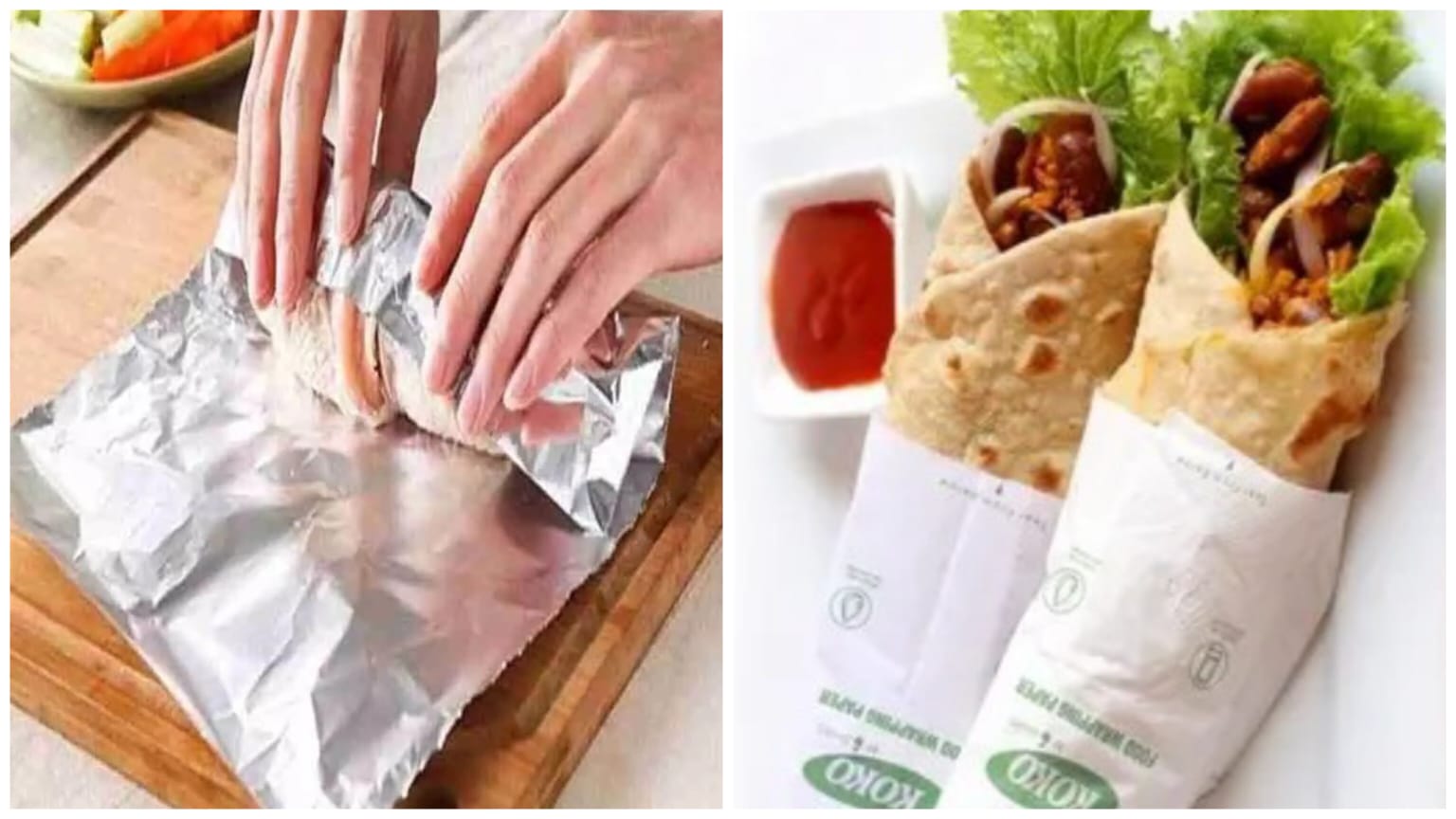[ad_1]
Aluminum foil is a versatile kitchen staple that offers several advantages, especially when it comes to cooking and storing food.
Advantages:
- Heat Resistance: One of the most significant advantages of aluminum foil is its ability to withstand high temperatures. This makes it ideal for use in ovens or on grills. Unlike many other wrapping materials, aluminum foil does not melt or burn at high temperatures, making it perfect for cooking or reheating food. It can handle direct exposure to heat, which is essential when roasting or grilling.
- Barrier Properties: Aluminum foil provides an excellent barrier against moisture, light, and air. This helps to keep food fresh by preventing it from drying out or becoming soggy. The foil’s barrier properties are particularly beneficial when storing foods that are prone to spoilage or need to be kept at a certain moisture level. It also helps in maintaining the aroma and flavor of the food by blocking out external odors and flavors.
- Durability: Another notable benefit of aluminum foil is its durability. It is sturdy and can maintain its shape, which means it is less likely to tear or rip compared to other wrapping materials. This makes it an excellent choice for wrapping heavy or bulky items. Additionally, aluminum foil can be easily molded to fit the shape of the food or container, providing a secure seal that helps in preserving freshness.
Best Uses:
- Cooking or Baking: Aluminum foil is ideal for cooking or baking in the oven. It can be used to wrap foods that need to be cooked at high temperatures, such as meats, vegetables, and baked goods. It is also great for grilling, as it helps in even cooking and prevents food from sticking to the grill.
- Long-Term Storage: If you need to keep items fresh for a longer period, aluminum foil is a great choice. It’s particularly useful for wrapping meats or baked goods, as it prevents moisture loss and protects against freezer burn when storing in the freezer.
- Covering Dishes: Aluminum foil is perfect for covering dishes while cooking. It prevents splatters, helps retain moisture, and ensures even cooking by reflecting heat back onto the food.
Butter Paper (Parchment Paper)
Butter paper, also known as parchment paper, is a staple in baking and food preparation. It has several unique features that make it a valuable addition to any kitchen.
Advantages:
- Non-Stick Surface: Butter paper is coated with a non-stick material, which makes it ideal for baking. This non-stick surface prevents food from sticking to baking sheets and pans, making it easier to remove baked goods without damaging them. It also eliminates the need for additional grease or oil, making it a healthier option for those who are mindful of their fat intake.
- Easy to Handle: Butter paper is flexible and can be easily cut into various shapes and sizes, making it convenient for multiple uses. Whether you’re lining a baking tray, wrapping a sandwich, or covering a surface for food preparation, butter paper can be tailored to fit your specific needs. This flexibility makes it a versatile tool in the kitchen.
- Eco-Friendly: Unlike aluminum foil, butter paper is biodegradable and can be a more environmentally friendly option. It decomposes more easily than aluminum foil, which can be an important consideration for those looking to reduce their environmental footprint. Additionally, many brands offer butter paper made from sustainably sourced materials, adding to its eco-friendly credentials.
Best Uses:
- Baking: Butter paper is ideal for lining baking trays and pans to prevent food from sticking. This is especially useful when baking cookies, cakes, or pastries, as it ensures easy removal and cleanup.
- Wrapping Dry Foods: Butter paper is great for wrapping dry foods, such as sandwiches, cookies, and pastries. It provides a clean, non-stick surface that helps keep these foods fresh without adding moisture.
- Food Preparation: Butter paper can be used in various food preparation tasks where a non-stick surface is needed. It’s perfect for rolling out dough, sifting dry ingredients, or preparing items for freezing.
Aluminum Foil vs. Butter Paper: Which Should You Choose?
The decision between aluminum foil and butter paper largely depends on your specific needs and the type of food you are preparing or storing.
- For High-Temperature Cooking and Moisture Control: If you are cooking or reheating food at high temperatures and need a material that provides a strong barrier against moisture and air, aluminum foil is your best option. It’s perfect for roasting, grilling, and baking foods that need to stay moist and flavorful.
- For Baking and Wrapping Dry Foods: If you are looking for a non-stick surface for baking or a more eco-friendly option for wrapping dry foods, butter paper is ideal. It’s perfect for baking delicate pastries and cookies, as well as wrapping sandwiches and other dry items that don’t require a moisture barrier.
By understanding the unique advantages and best uses of aluminum foil and butter paper, you can make an informed decision about which wrapping material is best suited for your kitchen needs. Whether you prioritize heat resistance, moisture control, non-stick properties, or environmental impact, choosing the right wrapping paper can help keep your food fresh, delicious, and properly prepared.
[ad_2]
